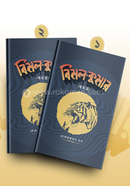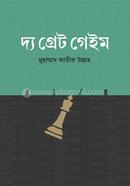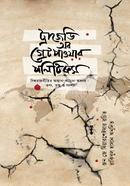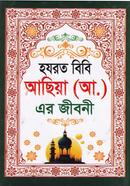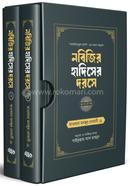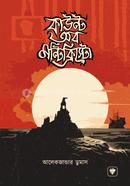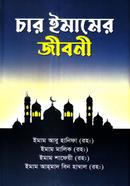First, I take the privilege to tell the readers what this book is about. “Geopolitical Stories around the world” is a compilation of articles written by the author on intricate geopolitical issues covering different parts of the world.
Articles were published in different national and international dailies and journals like the daily New Age, The Business Standards, the Prothom Alo English, the Daily Star, the Naval Review UK, the Proceedings USA, Headmark-journal of Australian Naval Institute, Mirpur Papers-Journal of Bangladesh Defence Services Command and Staff College, Journal of National Defence College, Bangladesh, Journal of Bangladesh Institute of International and Strategic Studies and Journal of Bangladesh Institute of Maritime Research and Development and Journal of National Defence College, Bangladesh. From the series of write ups, selected articles have been included in this book.
Each article has the reference where and when it was published. Citations have been kept simple in customized format. While the syntax and pitch of deliberations of each topic have been kept unchanged to help readers to comprehend the situation/context of the article and predictions made at the time each article was drafted. Readers, as they understand the current specific issue of a country or a region, they will appreciate how things evolved this far through the twist and turns of international politics.
While this book is expected to be a handy reference for the readers generally having interests in geopolitical affairs, it will in particular be a book of immense value to professionals in the diplomatic services, military services, researchers, political scientists, historians, journalism and practitioners of maritime security. Besides benefitting professionals, “Geopolitical Stories around the world” will be a handy reference book for the students of International Relations, Journalism, History, Political Science and Maritime Affairs. This book will give students an easier understanding of the complex fabrics of geopolitics.
For example, Myanmar military regime’s atrocity crimes against Rohingyas in 2017 has far reaching impact on Bangladesh. This book provides in depth facts and analysis on Rohingya refugee genocidal crisis. For example, how Rakhine geopolitics have rendered Rohingyas stateless ethnicity in Myanmar? Why Bangladesh cannot repatriate Rohingya refugees? What is the demographic impact of the Rohingya population on Bangladesh’s security? What were the
v
purposes of Myanmar military regime’s Rohingya genocide? Did Arakan Rohingya Salvation Army (ARSA) really exist or was it military regime’s enactment?
Major military powers are at war which have global implications, Russia-Ukraine War for example. Could Russia-Ukraine War be avoided? US-China political and economic rivalry are increasing. NATO wants to contain China. India also wants to limit China’s outreach. But China is widening its area denial capacity. How will the US-China rivalry influence global geopolitics in future? How China’s immutable stand on Taiwan could reshape global geopolitical landscape in general and Asia in particular? Will China attack Taiwan? Will China and India fight another war? Will they engage at sea? These critical and topical questions and many more areas of global significance which will hugely impact the world, have a lucid discussion in this book.
Middle East region is a global hot spot. It has been pushed to the brink of wider regional conflict involving Iran, Syria, Hezbollah in Lebanon, Hamas in Gaza and Houthi in Yemen. Iran for the first time in the history of Middle East fired approximately 300 missiles and drones (Operation True Promise) into Israel on 13 April 2024 following Israel’s bombing of Iranian Consulate in Syria on 1 April 2024. The second wave of 180 missiles were fired (Iran called it Operation True Promise 2) into Israel on 1 October 2024 after Israel killed Hamas leader Ismail Haniyeh on 31 July 2024 in Tehran and Hezbollah leader Hassan Nasrallah on 27 September 2024. Without US support Israel does not withstand resistance In the Middle East. Therefore the question is, why and how USA has become Israel’s guarantor in the Middle East?
This book very neatly illustrated how did Iran-Iraq war changed geopolitical landscape of the Middle East? Since then the dust of war never settled in the Middle East.
Military is an important component of a country to advance its geopolitical intentions. Readers will be able to understand the intricate role of military in the geopolitical play. For example, USA invaded Iraq in 2003 allegedly to eliminate the threat to world peace emanating from Saddam Hussein’s Weapon of Mass Destruction. Major combat operations in Iraq ended in 2011. US contingents are still there in Iraq in 2024. But where is the bomb? If there was no bomb, why did USA invade Iraq? How did the war impact the regional stability? I hope readers will find all these answers in this book.
vi
On the occasion of publishing this book the “Geopolitical Stories around the world”,
I take the opportunity to sincerely thank my friends and colleagues for encouraging
me to publish this book. I am grateful to my family for their continuous support in
this geopolitical and politico-military pursuit.
Commodore Mohammad Abdur Razzak, NUP, ndc, psc, M Phil (Retd)
![]()





 Hello, Sign in
Hello, Sign in 
 Cart
Cart 






















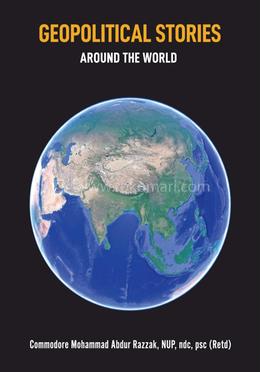

.svg) In Stock
In Stock 


